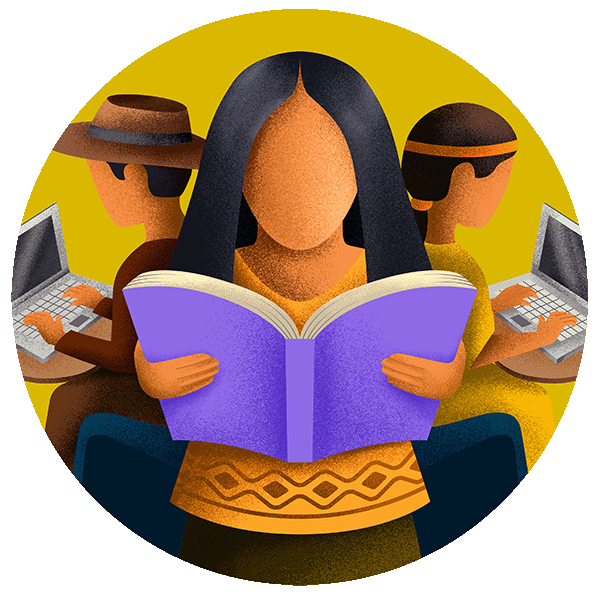
News Bulletin CS September
A short update on current events from around the world on the topic of Indigenous Rights.
PRODUCTION
Shaldon Ferris (KhoiSan)
Stand Tall Like A Mountain_Indigenous Peoples' Day 2018
Indigenous peoples' day is about honoring indigenous resistance, and celebrating the contributions of indigenous peoples all over the world. In this newsletter we celebrate the activism of Antie Pua Case from Hawaii, and other activists around the world who fight to preserve our mountains, our rivers, our valleys, our Earth. The program ends with a song by Taino artist Brothery Mikey, who produced a song called "Like the Mauna", inspired by the Indigenous People of Hawaii's efforts to protect the sacred Mauna.
International Day of the World's Indigenous Peoples: Victory in Nepal
Indigenous Rights Radio Program on a case where the Newar indigenous community in Nepal obtained a victory in their legal battle against the government after about 7 years of continuous struggle.
Interviewees: Advocate Shankar Limbu
Music: Remember your children: by Solidummay.
Introductory Music: "Burn Your Village to the Ground" by A Tribe Called Red. Used with permission.
Biweekly News Bulletin Part II - May 2018
A short update on current events from around the world on the topic of Indigenous Rights.
PRODUCTION
Shaldon Ferris (KhoiSan)
Biweekly News Bulletin Part I - May 2018
A short update on current events from around the world on the topic of Indigenous Rights.
PRODUCTION
Shaldon Ferris (KhoiSan)
UN Special Rapporteur Victoria Tauli-Corpuz on UNPFII Theme 2018
This year's theme for conversations at the UN Permanent Forum on Indigenous Issues was "Indigenous Peoples Collective Rights to Lands and Resources". Victoria Tauli-Corpuz (Igorot Kankanaey, Philippines), UN Special Rapporteur on Indigenous Issues, says that the theme connects to many important conversations happening now in the world, including the threat that extractive industries pose to resources located on Indigenous-owned territories.
Bears Ears At Risk
The reduction in size of the Bears Ears National Monument by the Trump Administration runs contrary to the principles established in Article 26 of the United Nations Declaration of the Rights of Indigenous Peoples. We spoke to Braidan Weeks, the Communications Coordinator for Utah Diné Bikéyah, about the importance of Bears Ears, the unlawfulness of the actions taken by the Trump administration, and the advocacy currently underway to defend the monument led by the Tribes of the Bears Ears Inter-Tribal Coalition.
Indigenous Science Is Lifesaving And Rights To It Must Be Protected
Though collaboration is crucial to finding solutions for climate change, Indigenous People must be able to maintain, protect, and control their cultural heritage, sciences, and technologies. The UN Declaration on the Rights of Indigenous Peoples provides a legal framework for intellectual ownership by Indigenous communities of their traditional knowledge. However, many additional cultural barriers to equal-footed climate change collaboration exist, such as the automatic devaluation of Indigenous science by Western science practitioners.
Indigenous Resiliency Amidst Changes In Fire And Ice
A close relationship with local environments and ecosystems is more critical than ever in the face of a rapidly changing climate. This program features two perspectives from Indigenous communities that are practicing resiliency to global warming by adapting their traditional knowledge and science to put a changing climate into the context of their communities' history and lifeways.
INTERVIEWEES
Elizabeth Azzuz (Yurok), Cultural Fire Management Council
Jannie Staffansson (Saami), Arctic and Environment Unit of the Saami Council
Lessons From Honduras On Indigenous Biodiversity Work + Partnerships
Indigenous communities in Honduras have stewarded the Muskitia, a rain forest which includes one of the richest concentrations of biodiversity in the world, for centuries. Osvaldo Munguia is a representative of MOPAWI, an organization that partners with Indigenous groups to protect this UNESCO world heritage site from being overtaken by logging, mining, and forestry business interests.
MUSIC
"Remember Your Children," by Salidummay. Used with permission.
Introduction: "Burn Your Village to the Ground" by A Tribe Called Red. Used with permission.
